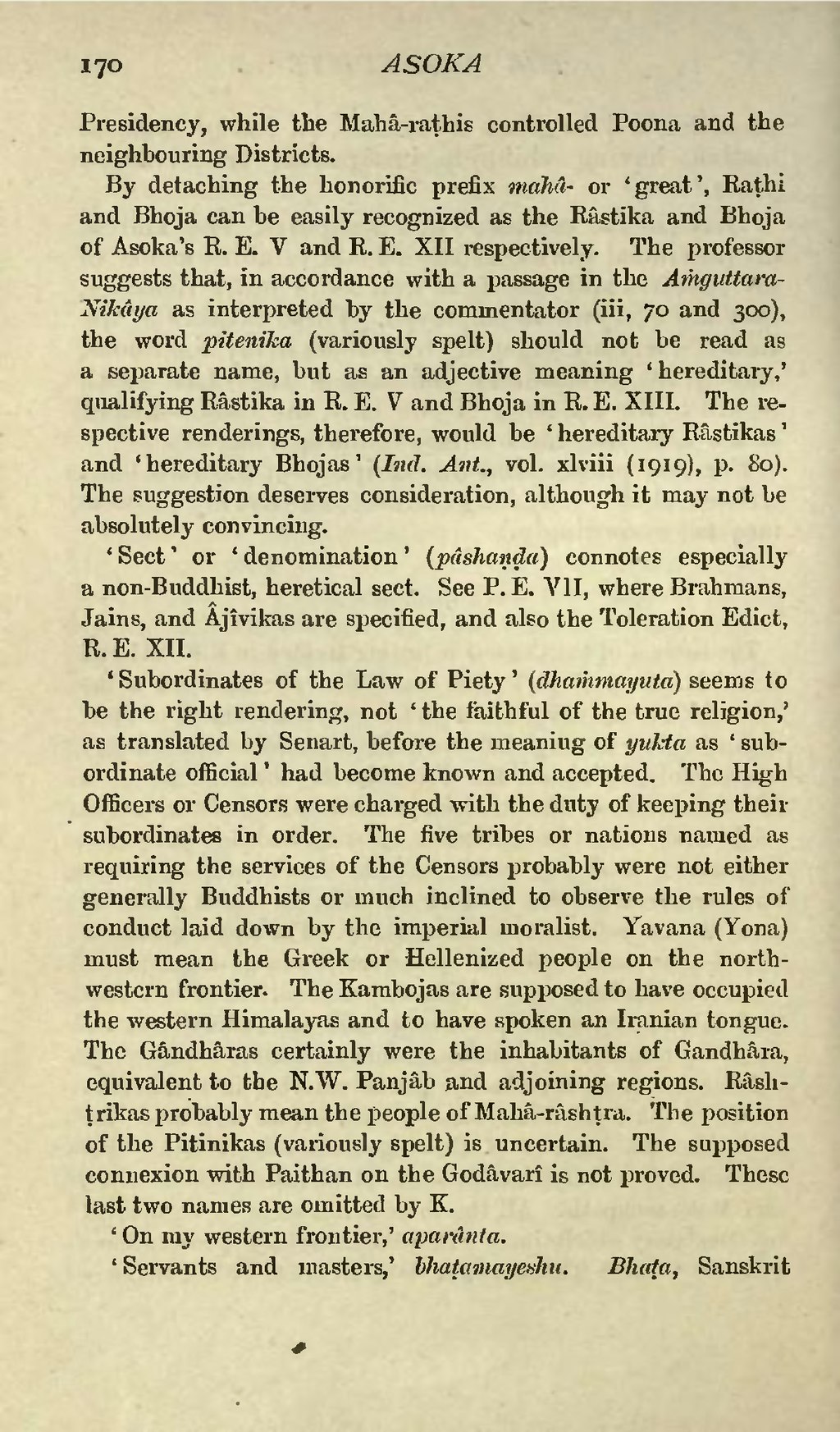Presidency, while the Mahâ-raṭhis controlled Poona and the neighbouring Districts.
By detaching the honorific prefix mahâ- or 'great', Raṭhi and Bhoja can be easily recognized as the Râstika and Bhoja of Asoka's R. E. V and R. E. XII respectively. The professor suggests that, in accordance with a passage in the Amguttara-Nikâya as interpreted by the commentator (iii, 70 and 300), the word pitenika (variously spelt) should not be read as a separate name, but as an adjective meaning 'hereditary,' qualifying Râstika in R. E. V and Bhoja in R.E. XIII. The respective renderings, therefore, would be 'hereditary Râstikas' and 'hereditary Bhojas' (Ind. Ant., vol. xlviii (1919), p. 80). The suggestion deserves consideration, although it may not be absolutely convincing.
'Sect' or 'denomination' (pâshmaṇḍa) connotes especially a non-Buddhist, heretical sect. See P. E. V11, where Brahmans, Jains, and Âjîvikas are specified, and also the Toleration Edict, R. E. XII.
'Subordinates of the Law of Piety' (dhaṁmayuta) seems to be the right rendering, not ‘the faithful of the true religion,' as translated by Senart, before the meaning of yukta as 'subordinate official' had become known and accepted. The High Officers or Censors were charged with the duty of keeping their subordinates in order. The five tribes or nations named as requiring the services of the Censors probably were not either generally Buddhists or much inclined to observe the rules of conduct laid down by the imperial moralist. Yavana (Yona) must mean the Greek or Hellenized people on the north-western frontier. The Kambojas are supposed to have occupied the western Himalayas and to have spoken an Iranian tongue. The Grândhâras certainly were the inhabitants of Gandhâra, equivalent to the N.W. Panjâb and adjoining regions. Râshtrikas probably mean the people of Mahâ-râshtra. The position of the Pitinikas (variously spelt) is uncertain. The supposed connexion with Paithan on the Godâvarî is not proved. These last two names are omitted by K.
'On my western frontier,' aparânta.
'Servants and masters,' bhaṭamayeshu. Bhaṭa, Sanskrit